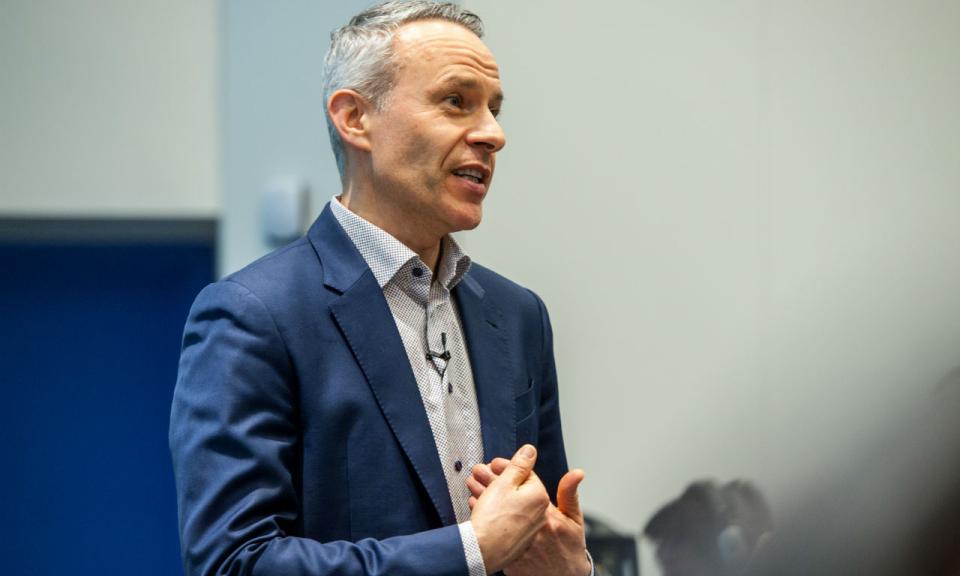Published
Markus Perkmann, Professor of Innovation and Entrepreneurship, gave his inaugural lecture at Imperial Business School on 19 February
His lecture: "The impact of science on economy and society" examined the relationship between science and society, the impact of science and how commercial funding has the potential to affect scientific discoveries.
Markus started with a whistle-stop tour through the evolution of science's role in society, including the post-war consensus when it was agreed the state had a duty to fund basic science on a large scale in order to fuel technical progress, such as curing diseases, while also giving scientists autonomy in their work.
He then went on to explore the different ways academics can have an impact on society, such as through problem-solving by writing joint publications, providing consultancy services and offering informal advice; through community-based activities, including lectures for the community and social enterprises; and with people-based activities, such as curriculum development, sitting on advisory boards and participating in networks.
"Science operates as a semi-autonomous system in society but there are lots of effects and benefits [of science on society]. One of them is the computer... the development of the computer owes very much to the fact that university scientists needed to collect and analyse large-scale data and they were looking for tools to help them to do this."
Markus also covered the impact of commercial activity on scientific research, exploring how and whether this could affect science in terms of productivity, pressure towards applied research, openness and commercial bias.
"There's evidence that when knowledge is patented, academics are waiting to publish their findings and hence the diffusion of knowledge is slower."
In his research, Markus focuses on science-based organisations and science-based entrepreneurship, with a particular interest in the relationship between the world of academic science and industry, and special hybrid organisations that can act as a bridge between the two.
He also studies entrepreneurship within corporations, including research into why individuals within large organisations decide to found start-up companies.


